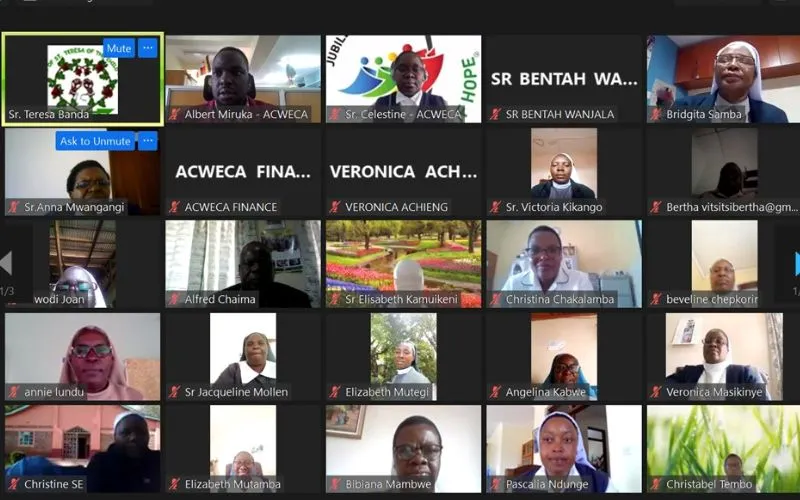In his April 14 presentation, Bishop Chaima challenged ACWECA members, who include women Religious in Eritrea, Ethiopia, Kenya, Malawi, South Sudan, Sudan, Tanzania, Uganda, Zambia, and Zimbabwe to nurture hope in themselves before they can share it.
“We can't give hope if we don't have it. So, how do we resuscitate? How do we sustain? How do we make sure that we are people who are full of hope?” he posed and continued, “If we are not full, at least we are people who can share a bit of hope with others.”
Bishop Chaima emphasized the important place of personal and communal prayer in the life of ICLSAL members, adding that meditation and discernment can boost hope.
“We, as agents, active agents of evangelism, need time to listen and meditate, read and reflect on the Word of God,” the 54-year-old Malawian Catholic Bishop said.
He went on to caution the Clergy and women and men Religious against undermining the Sacrament of Confession, which he said contributes to fostering hope.
(Story continues below)
Referring to the yearlong Jubilee, which Pope Francis officially launched on the Eve of 2024 Christmas with the opening of the Holy Door of St. Peter's Basilica of Rome, Bishop Chaima said, “Some of us will celebrate from 24th December 2024 to 6th January 2026 and never go for Confession and we are active members of evangelization; we are Priests, and Religious and we think confession is for others, not us.”
“Every Jubilee offers new opportunities, and the possibility of a new person. And each person will have those opportunities. Efforts made by each person shape the family and the wider community,” he said in his April 14 presentation at the two-hour virtual session, which the Kenya-based ACWECA Secretariat organized.
The Holy Father announced the start of a Year of Prayer on 21 January 2024 in preparation for the Church’s 2025 Jubilee Year, the second in his Pontificate after the Extraordinary Jubilee of Mercy in 2015.
He said that the 2025 Jubilee Year will be “a year dedicated to rediscovering the great value and absolute need for prayer in one’s personal life, in the life of the Church, and in the world.”
Months later, on the Solemnity of the Ascension of our Lord Jesus Christ on 9 May 2024, the Holy Father solemnly proclaimed the upcoming Jubilee Year 2025 at a ceremony in St. Peter’s Basilica, during which he delivered the Bull of Indiction of the planned Jubilee, “Spes non confundit” (Hope does not disappoint).
The Jubilee Year provides the people of God across the globe an opportunity to participate in various planned jubilee events at the Vatican and in their respective Episcopal Sees and ICLSAL.
Silas Mwale Isenjia is a Kenyan journalist with a great zeal and interest for Catholic Church related communication. He holds a Bachelor’s Degree in Linguistics, Media and Communication from Moi University in Kenya. Silas has vast experience in the Media production industry. He currently works as a Journalist for ACI Africa.









